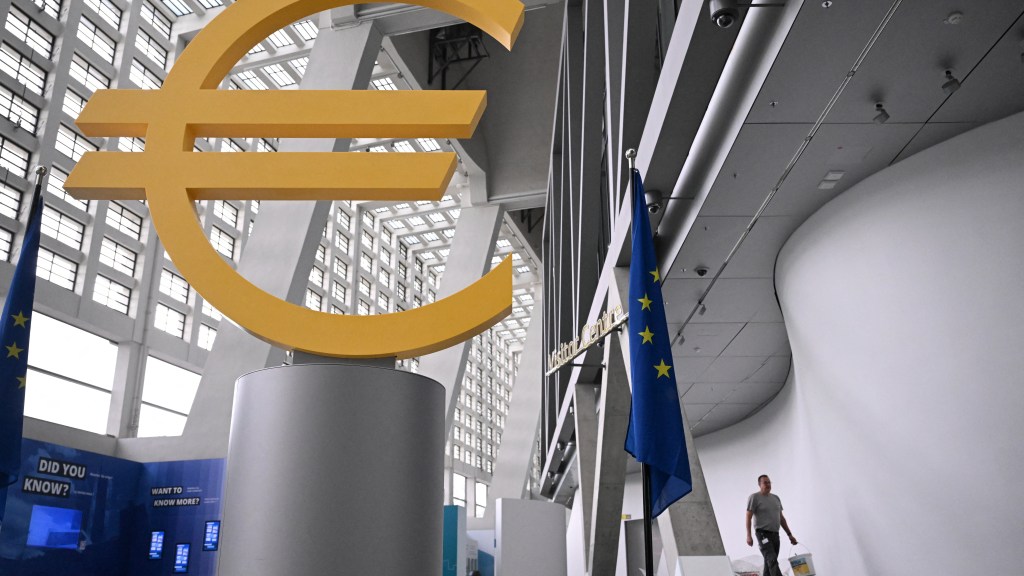Insights on Navigating the Effects of Brexit from a Business Leader
Andrew Lynas, aged 44, is the managing director of Lynas Foodservice, a family-run business established by his grandfather in 1951 as a fish shop in Coleraine. Over the years, his father expanded the company to supply frozen foods to a variety of clients, including restaurants, cafés, prisons, and hospitals throughout Northern Ireland. Andrew took the reins at 27, further diversifying the company’s offerings to include markets in the Republic of Ireland and Scotland.
Beyond its traditional customers, Lynas Foodservice caters to well-known brands like Pret A Manger, Caffè Nero, and KFC, generating approximately £200 million in sales last year. Currently, Andrew is assessing the implications of Labour’s new agreement with the EU, which is expected to eliminate border checks on the majority of British food exports heading to the EU.
Brexit Complicates Operations and Increases Costs
The practical implications of Brexit were not fully anticipated. Over the last five years, businesses in Northern Ireland, spanning various sectors, have worked diligently to find practical solutions amidst the challenges posed by Brexit.
One outcome has been the establishment of a customs team—a department that did not exist prior—which has inevitably led to added cost and complexity.
Brexit’s reality dictated that a border would manifest in some form. Stakeholders in Northern Ireland hoped the most favorable outcome would be an east-west border rather than a north-south one.
It’s ironic that transporting goods from Great Britain to Northern Ireland involves significant paperwork, while sending items to Scotland nightly requires none. There’s a disproportionate amount of red tape in one direction compared to the other.
After a 30-year partnership with a supplier disintegrated overnight, ongoing changes in regulations have further complicated matters. However, the Windsor Framework, finalized in February 2023, has provided a clearer path forward.
Modifications to Supply Chains Result in Improved Products
Adapting to Brexit necessitated a shift away from British suppliers to minimize paperwork and complications associated with increased order frequency and extended lead times.
For instance, the sourcing of Parma ham, initially routed through Great Britain before reaching the Republic of Ireland, became unfeasible due to tariffs and duties. By pivoting to a new Irish supplier and establishing direct connections with Italian producers, the company has managed to secure a superior product.
Sometimes, facing challenges drives innovation; reassessing sourcing options has led to enhanced supply quality and efficiency rather than merely relying on a long-standing supplier.
Increased Stock Requirements and Consumer Impact
The necessity to carry more inventory has translated to more financial strain. Previously, the company could purchase smaller quantities, but – post-Brexit – it became essential to buy entire containers directly from suppliers, resulting in higher costs and increased storage requirements.
As a consequence of Brexit, Lynas Foodservice now carries an average of £500,000 to £750,000 more stock than before, imposing a significant financial burden on the business.
Interestingly, many Northern Irish companies that historically sourced goods through Dublin have adopted more European practices as a workaround. Unfortunately, this shift has also resulted in higher costs for consumers due to customs declarations and medical certificates, which are inevitably passed on.
A Positive Outlook Despite Challenges
Looking ahead, Andrew is optimistic about the EU trade deal unveiled in May, believing that the direction is promising.
While there is enthusiasm regarding the agreement, Andrew notes that it could take at least a year before such legislation is enacted—and potentially two years to gauge its full impact.
Though the outlook appears positive, Lynas Foodservice has adjusted its operations accordingly and is not eager to revert to previous methods, having established new supplier relationships in the process.
Resilience of Northern Irish Businesses
Despite the various challenges faced, businesses in Northern Ireland have exhibited remarkable resilience. History bears witness to the community’s ability to manage adversity, and in the face of Brexit complexities, organizations have sought innovative solutions.
Andrew emphasizes that finding solutions is possible even amidst significant setbacks, citing the loss of 85% of his business during the COVID-19 pandemic as evidence that business leaders can overcome substantial obstacles.
Andrew Lynas shared these insights in a discussion with Niamh Curran from the Times Entrepreneurs Network.




Post Comment